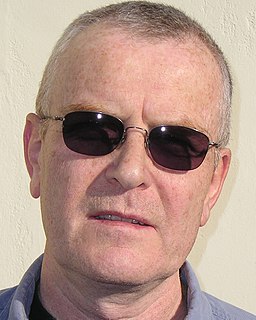A Quote by Jason Kenney
You ought not to accept the claim that this is a religious practice. I think that's, frankly, problematic for Islam, for well-intentioned Liberals like you to say that this is a religious practice when the overwhelming consensus of Islamic scholars around the world, and the overwhelming majority of Canadian Muslims, believe this has absolutely - that the niqab as face covering, that this symbol of misogyny has nothing to do with Islam.
Related Quotes
Many of Islam's apologists insist that suicide bombing is not Islamic because the Koran forbids suicide. Mmm-hmm. So where are all the Muslims gathering in mass demonstrations to vehemently condemn this practice that slanders their religion? Why does contemporary Islam promote 'martyrdom' as the highest duty of Muslims? Why are photographs of suicide bombers plastered everywhere in Beirut? Because Islam is what Islam does.
We know they have nothing to do with Islam because our politicians keep telling us that, and they are all Islamic scholars. (They are, aren't they?) Yes, the violence is coming exclusively from Muslims, but only because their religion (the one that has nothing to do with Islam) tells them to kill unbelievers, meaning people who don't follow the religion with a knife to our throat that has nothing to do with Islam.
What we argue in the piece is that the headscarf has become a political symbol for an ideology of Islam that is exported to the world by the theocracies of the governments of Iran and Saudi Arabia. Just like the Catholic Church in the 17th century did religious propaganda to challenge the Protestant Reformation, these ideologies are trying to define the way Muslims express Islam in the world.
In the Christian world, as you remember, Christianity is in the 21st century, Islam is in the 15th century. I don't mean to say that Islam is backward; I mean to say that there are certain experiences that it hasn't gone through. Christianity had the great religious wars of the 17th century. Islam, fortunately for the Muslims, did not have that. Christianity worked out a system of toleration. Islam was always more tolerant of Christendom.
I think there is a lot of continuity between the Jewish and the Islamic traditions. We know this historically, though people don't want to talk about that - especially Muslims. There is a common source for both Judaism and Islam, or let's say that Islam finds its source in Judaism. The commonalities of practice and sensibility, ethos and mythos, create a lot of overlap.
Rather than being a 'perversion' of Islam, it is truer to say that the version of Islam espoused by ISIS, while undoubtedly the worst possible interpretation of Islam, and for Muslims and non-Muslims everywhere obviously the most destructive version of Islam, is nevertheless a plausible interpretation of Islam.
The sense of Islam as a threatening Other - with Muslims depicted as fanatical, violent, lustful, irrational - develops during the colonial period in what I called Orientalism. The study of the Other has a lot to do with the control and dominance of Europe and the West generally in the Islamic world. And it has persisted because it's based very, very deeply in religious roots, where Islam is seen as a kind of competitor of Christianity.
When I was in the US, I felt that the discourse there surrounding Muslims as the other, problematising Muslims and Islam as the other was very similar to what we find in Australia, which is that the image of Islam is a constructed image in the West. We are starting from a point of view that Islam and Muslims - well Islam is a violent, misogynistic, hateful religion and that is where the debate always starts from - that presumption underlies the discourse.
I think Islam has been hijacked by the idea that all Muslims are terrorists; that Islam is about hate, about war, about jihad - I think that hijacks the spirituality and beauty that exists within Islam. I believe in allowing Islam to be seen in context and in its entirety and being judged on what it really is, not what you think it is.
When I was growing up, we often heard Islam in the form of a slogan: "Islam is the solution," but no one ever told me that Islam can be a burden... Very few Muslims write about Islam creatively because I don't think we're given permission to. I think that's the bane of modern Islam. It's been reduced to slogans.
ISIS is not Islam. No, I'm not saying that. The government says that. The left, the media says it. ISIS is not Islam. You've heard Obama say that. ISIS is making a mockery of Islam. In fact, what you really need to understand about the way our government looks at Islam, they look at Islam as anti-terror as well. Islam is anti-terrorism. Therefore, no terrorism can actually be Islamic.
I don't find any difference between Islam and Islamic fundamentalists. I believe religion is the root, and from the root fundamentalism grows as a poisonous stem. If we remove fundamentalism and keep religion, then one day or another fundamentalism will grow again. I need to say that because some liberals always defend Islam and blame fundamentalists for creating problems. But Islam itself oppresses women. Islam itself doesn't permit democracy and it violates human rights.
If you ask a Saudi Imam why women in Saudi Arabia can't drive, he'll say, 'Because Islam demands it.' But that's absurd, because - first of all - Islam demands no such thing; and secondly, the only country in the world in which women can't drive is Saudi Arabia. The inability to understand the difference between a cultural practice and religious belief is shocking among self-described intellectuals.

































